Sharing our work with the wider world
UCL launches successful Walking Tour
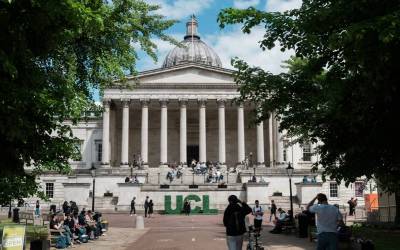
To further open up UCL to the general public, the UCL Walking Tour was created to invite members of the public onto campus to learn more about UCL’s rich and radical history. The tour which is run by a group of student ambassadors who have received comprehensive training from a Blue Badge Tour guide, features key sites on campus such as the Henry Wilkins Building, the Institute of Making, the Petrie Museum, the Student Centre and the Japanese Garden. The UCL Walking Tour touches on key figures and moments in the rich and radical history of UCL which have led UCL to become one of the world’s leading research and academic institutions.
Since its launch, 27 tours have taken place and over 500 people from all over the world have explored campus. The Tour has also been given to representatives from Germany’s U15 group and the CEO’s and Vice Chancellors of the Russell Group as part of their respective visits to UCL.
Find out more:
Lockdown Cultures: The arts and humanities in the year of the pandemic, 2020-21
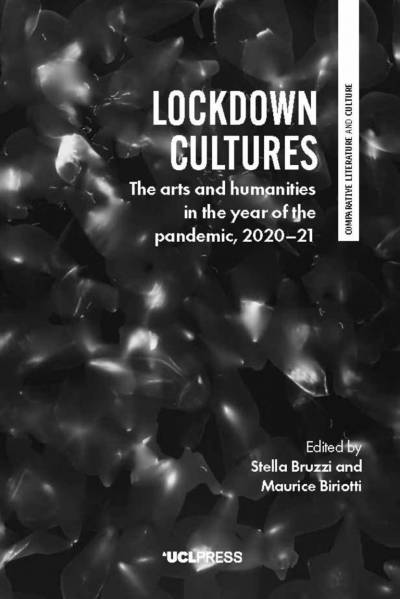
The book examines responses to lockdown through different creative lenses and from a wide range of disciplinary perspectives, looking at how responses to the arts, culture, humanities and history changed through Covid. While each contributor’s approach varies, there are two dominant themes: how art and culture can help us understand the Covid crisis; and how the value of the humanities can be demonstrated by engaging with cultural products from the past.
Lockdown Cultures captures how, in the year of the pandemic, we reassessed and reengaged with our subjects.
Find out more:
- Faculty of Arts & Humanities
- Download Lockdown Cultures for free from UCL Press
- Lockdown Cultures launch announcement
- UCL Press
Objects of the Misanthropocene: Unearthing futures
A speculative public exhibition in the Octagon Gallery, inspired by fictional accounts of the Anthropocene, aims to generate a sense of responsibility for caring for our planet now.
'Objects of the Misanthropocene: Unearthing futures' opened in September 2022 and is centred on the premise of a future museum that has sent objects back in time. These ‘time-travelling’ objects have been made by wide-ranging project participants across UCL and beyond, with many objects produced specifically for this exhibition. These sit alongside objects from UCL Collections and loans from the Museum of Beyond.
'Objects of the Misanthropocene: Unearthing futures' is curated by Dean Sully and Jo Volley in collaboration with UCL Museums and Cultural Programmes. The exhibition runs until 10 February 2023.
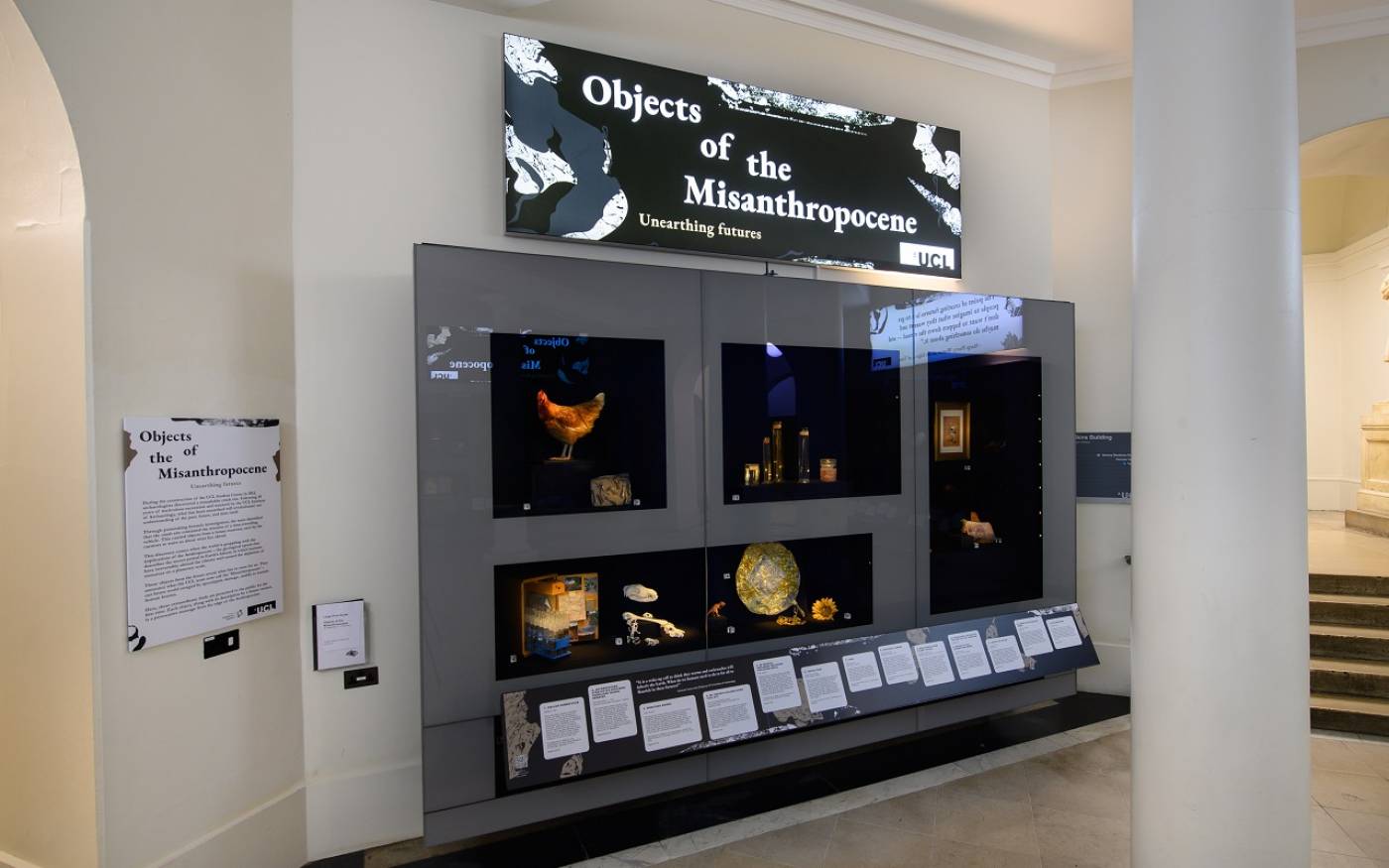
View of Objects of the Misanthropocene, Octagon Gallery. Image credit: Kirsten Holst
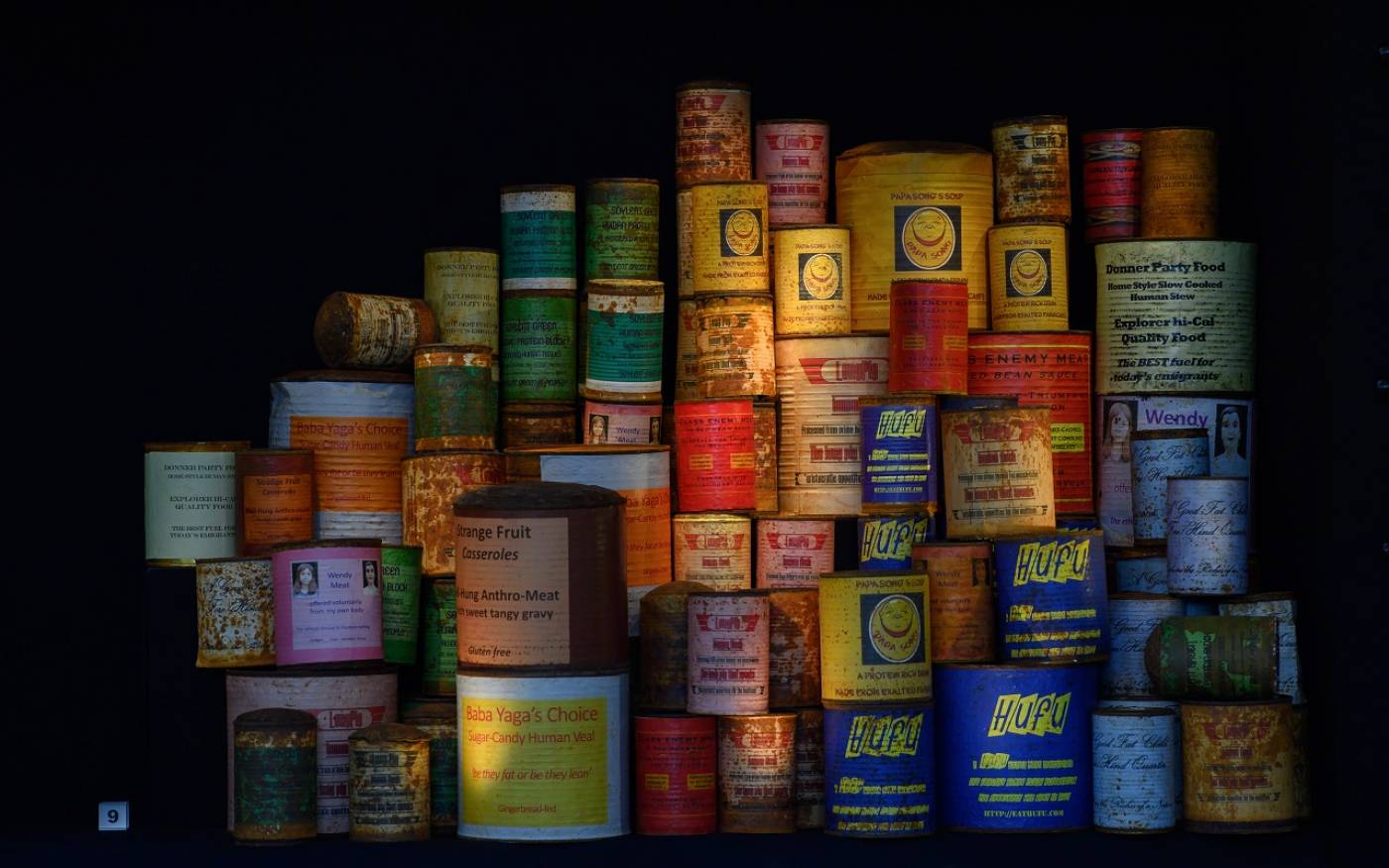
'Hoard of canned human meat, c. 0002210s - 0002729 CE, various locations'. Image credit: Kirsten Holst
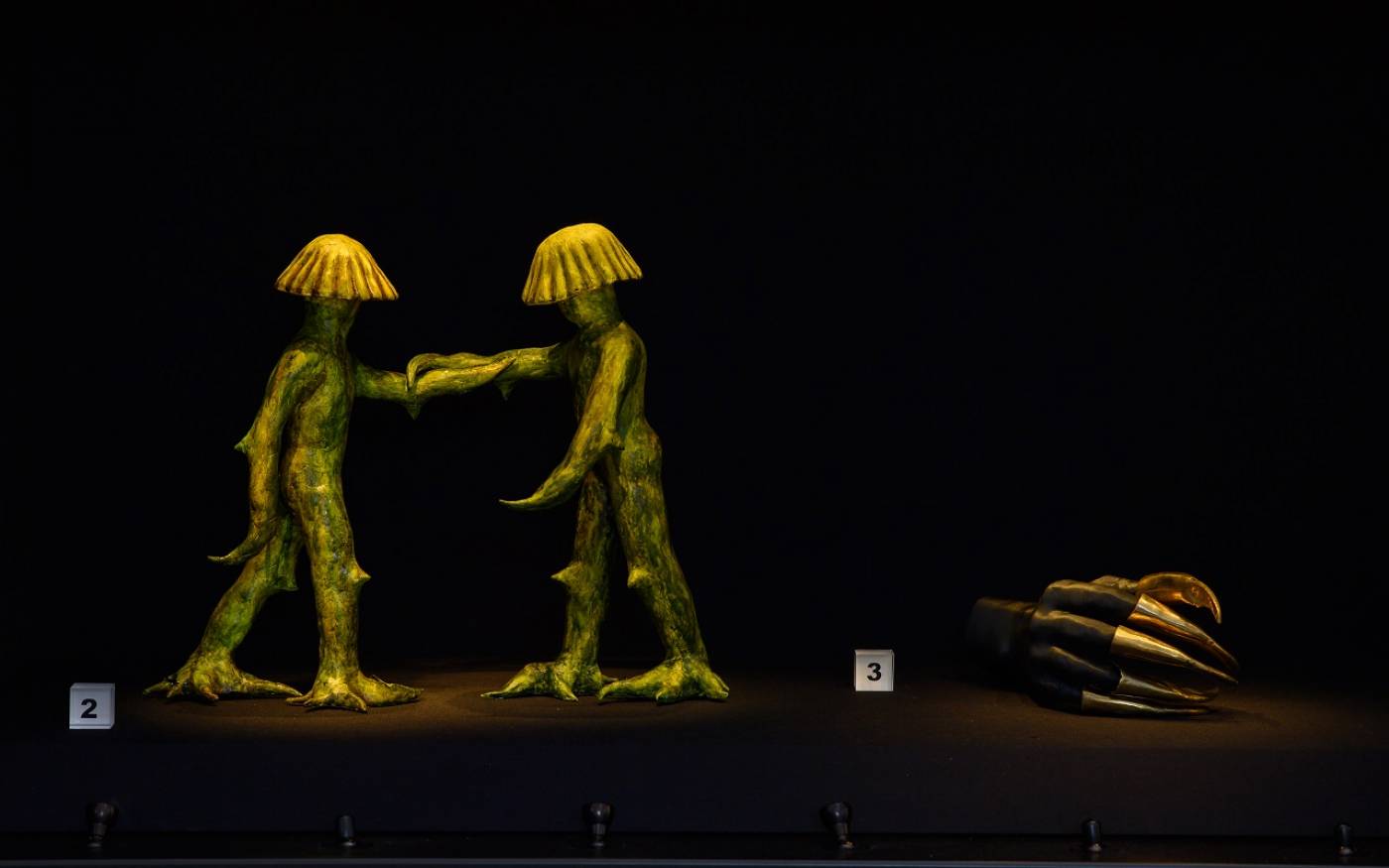
'Fungiprocene, 5602000 CE, Kibwezi Forest, Kenya' and 'Claws, 0003700 CE, found in the Carpathian Mountains'. Image credit: Kirsten Holst
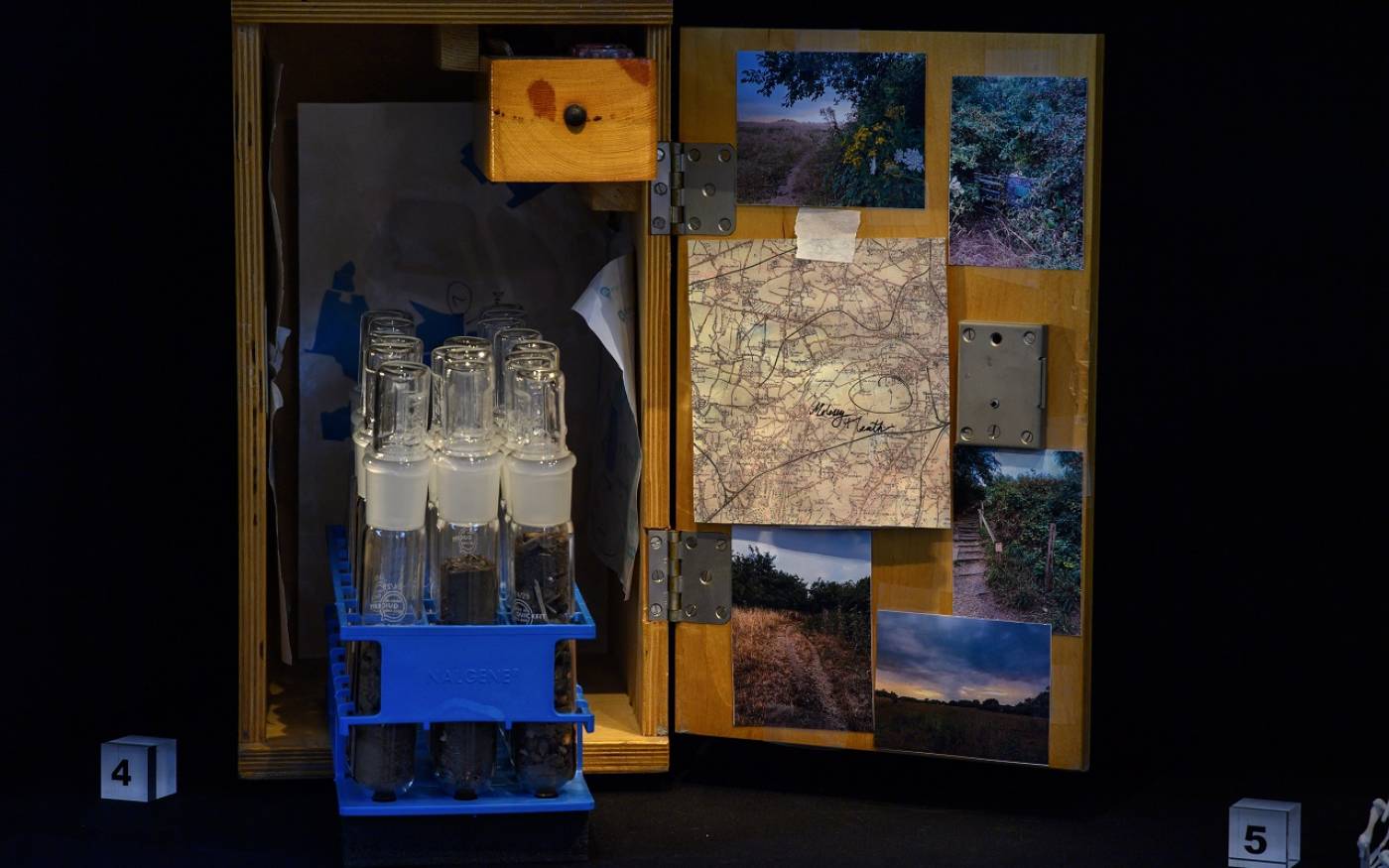
'Dr Roach’s Golden Spike Tool Kit, end of polypropylene layer, excavated by Dr. Roach, 00034500 CE, Molesey Heath'. Image credit: Kirsten Holst
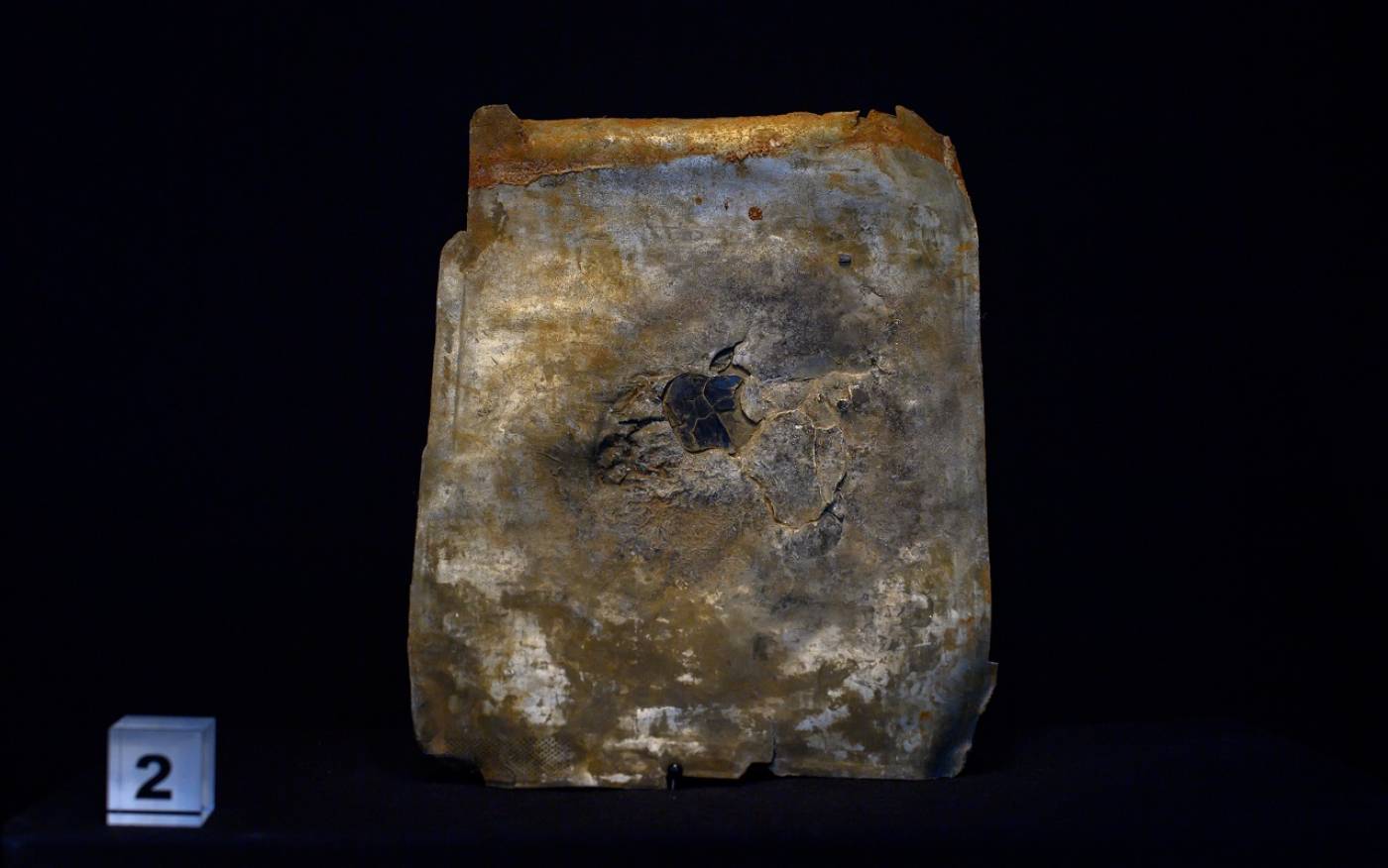
'Archaeological Remains of an iPad, Year of Our Risen Lord 1468 (0003493 CE), Addicott St. George, Wessex'. Credit: Kirsten Holst
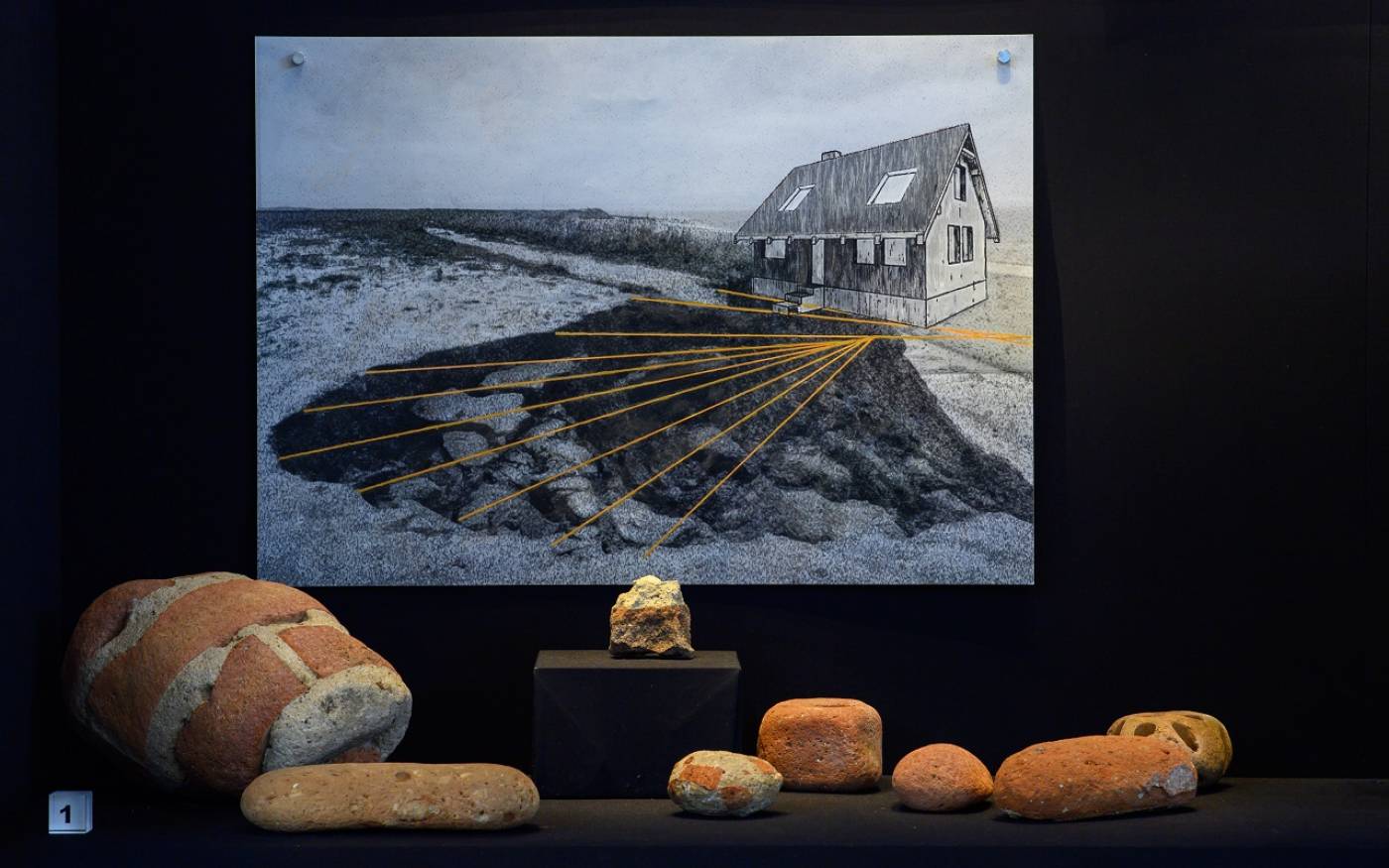
'Ghost Strata from a Sunken Future, c. mid-21st century, Norfolk coast, England'. Image credit: Kirsten Holst
Find out more:
- Objects of the Misanthropocene: Unearthing futures
- Read about the origins of this extraordinary project
UCL COVID-19 Social Study into how it has dramatically changed our lives
Since the beginning of the pandemic, researchers at UCL have collected nearly 1 million surveys and tens of thousands of testimonials from adults across the UK to study the psychological and social effects of COVID-19.
UCL’s award winning COVID-19 Social Study for Outstanding Societal Impact tracks the real time impacts of the pandemic on individuals and communities across the UK. Led by Dr Fancourt (UCL Institute of Epidemiology & Health Care), the project tracked more than 70,000 participants from the start of lockdown in March 2020 over the course of two years, to understand the impact of the pandemic on people’s daily lives, and how differences in age, socioeconomic background and other factors affected the impact of the pandemic on their lives.
A fully anonymised version of the dataset is archived on the UK Data Service to support continued scientific analyses.
Dr Fancourt said: “To be able to track the psychological and social effects of the pandemic in real time and inform government policies was an absolute privilege for us. I’m proud of the team and want to thank them, our participants and our funders for their support.”
Find out more
Images
- UCL Front Quad, courtesy of UCL Creative Services
- Lockdown Cultures cover, courtesy of the Faculty of Arts & Humanities
 Close
Close

